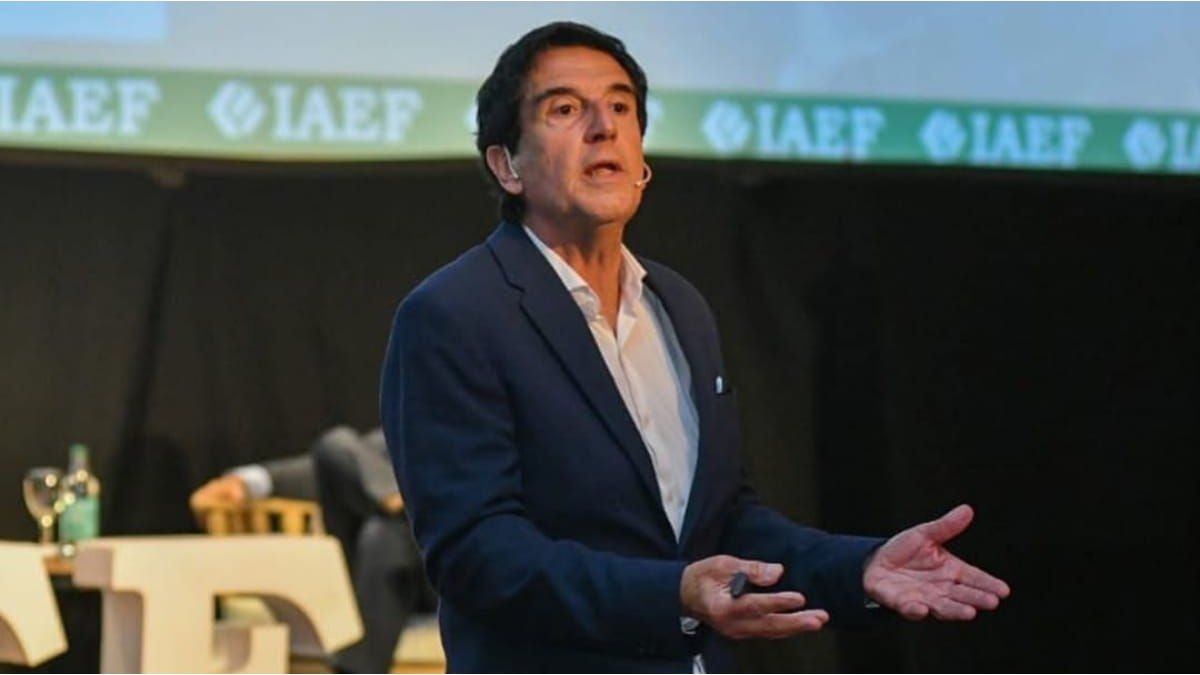Although a serious debate should focus on the role of the State on certain companies and strategic sectors, Milei imposes the dichotomous debate of State or Market.
Days ago Javier Milei published decree 873/2024 by which Aerolíneas Argentinas is placed as subject to privatization, a situation that had been threatened since the beginning of the administration. Although a serious debate should focus on the role of the State on certain companies and strategic sectors, Milei imposes the dichotomous debate of State or Market. Thus, instead of having a public debate about the connectivity and integration of our territory, the eighth largest country in area, it is simply about a balance in the void, without containing time, space and history of our airline.
The content you want to access is exclusive to subscribers.
Javier Milei is a fundamentalist, in this case of the economic theory known as public choice (public choice theory). James Buchanan, American economist, in his masterpiece The Calculus Consensus argues that the objective of politicians is simply to seek re-election or remain in office and therefore they do not make optimal economic decisions but rather based on their own interests. Along with Tullock, Buchanan was one of the first in 1960 to criticize and question Keynesian principles and in 1986 he received the Nobel Prize in Economics. The most relevant thing about the public choice perspective is thatby assuming that bureaucrats and politicians play their own interests when implementing public policies, this would lead to an increase in the public deficit. This view of politics and the State clearly questions the democratic foundations themselves and leaves room for simplifications such as “all politicians are the same”, “they cling to the chair”, “they are there for the money” or the famous “with yours taxpayer”, instead of discussing how to improve, look for more businesses and provide better services for each city, company, family, regardless of whether they live in Greater Buenos Aires.


Of course, there are no perfect organizations and there are always areas for improvement, but what we want to establish is the myth of public companies is that the greatest evil they suffer is because they are part of the State. It seems that, if suddenly the shareholders were the four or five largest fortunes in the country, the management, the service and the results would be immediately better, but we already experienced that situation and it was not like that, we just need to remember.
Let’s go back to heaven. In 2008, due to financial problems, the State was forced to rescue Aerolíneas Argentinas. It should be noted that The company was sold without debt, but when the State took charge of it again, it had to pay compensation for thousands of layoffs, Iberia mortgaged its planes and sold its properties, and Marsans finished emptying it.. Capitalism is very responsible, right?
Since then, under state management, the company experienced significant growth until 2014. The fleet and infrastructure were renewed, recovering the pilot training center. The government of Mauricio Macri also came with the idea of “open skies” and allowed low-cost airlines to enter the country, which often resulted in unfair competition with Aerolíneas Argentinas, as they did not have to comply with a minimum coverage. of unprofitable but central flights for the connectivity of the country and regional economies. Despite this, during the administration from 2019 to 2023, Aerolíneas not only played a central role during the pandemic (both to repatriate Argentines who were abroad and to distribute vaccines throughout the national territory), but it managed to turn its balance and became a surplus.
What will happen if privatization finally moves forward? As Cristina Fernández de Kirchner recalled there in 2022, “If the State only had a Darwinian conception that it only goes where there is profitability, what do we do with the millions of Argentines in remote destinations where there is no economic profitability? The response in the case of privatization would once again be the isolation and inequitable development of our regional economies where only those destinations that are beneficial for capital would be encouraged and the rest of the country would be plunged into oblivion.”
Economist, university professor, director of Banco Ciudad
Source: Ambito
David William is a talented author who has made a name for himself in the world of writing. He is a professional author who writes on a wide range of topics, from general interest to opinion news. David is currently working as a writer at 24 hours worlds where he brings his unique perspective and in-depth research to his articles, making them both informative and engaging.




